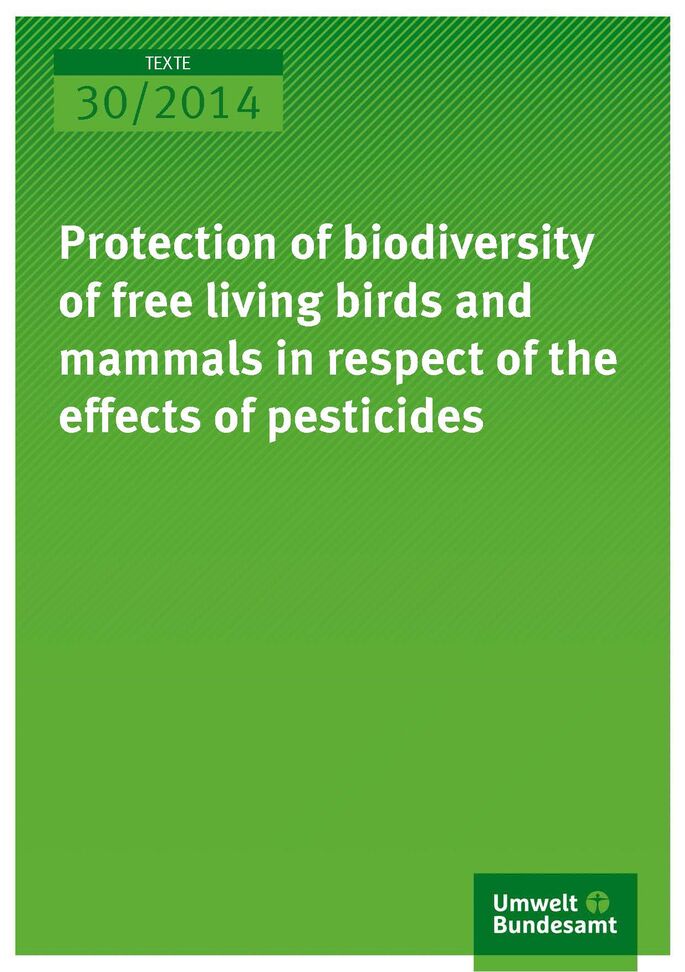
Protection of biodiversity of free living birds and mammals in respect of the effects of pesticides
After agriculture in Germany has become more intensive over the past decades, many populations of farmland birds and mammals are in an unfavourable conservation status. For 27 farmland bird species and 22 farmland mammal species we compile trends, habitat (crop) selection, threats and risk management measures. There is scientific-based evidence for indirect effects of pesticides at the population level of four European farmland bird species and several mammal species outside Europe. Data on diet and on habitat selection suggest that indirect effects of pesticides may affect many more species. We develop an index of pesticide sensitivity for farmland birds and mammals in Germany. According to expert opinion pesticides are among the major causes for population declines of farmland birds and we provide supporting evidence for this view. We analyze risk management measures with respect to efficiency and acceptance by farmers and authorities. At present agri-environmental schemes aiming to compensate for the negative effects of modern agriculture cover only about 0.5 % of the arable land in Germany. We develop a scheme of umbrella species to simplify risk management. We outline different strategies for implementing an effective risk management and we calculate associated costs. A levy on PPPs targeted to the implementation of a region-specific risk management would be practicable at relatively low costs.